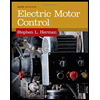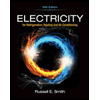Exercise 1: Humidity detector We propose to study the assembly of figure 1 which allows the ignition of a red diode from a certain percentage of humidity in the air detected by a sensor. The assembly elements are: VDD=3V, R₁=1ks, R₂=1000, R3=27002. Diode D₁: VSD1=1.2V, RSD1=12 2. Transistor T₁: B=100, Vcesat 0.2V and its base VST1=0.6V, RST1=1k2. The value of the resistor RH depend on the air humidity's percentage (noted X) following the relation RH=30X; where RH is in 2 and X in %. In all numerical applications, we will suppose that B+1ß. VDD is referenced to ground.. R₁ RH R₂ Capteur d'humidité Thevenin IBI VBEI R₂ LED rouge VDD Figure1: D. ICI T₁ VCEI VEI 1. Determine the expressions of the elements of the equivalent Thevenin generator (indicated on the figure) according to VDD, R₁, R₂ and RH. 2. Taking into account the operation of the transistor, give the expression of the current flowing through the resistor R3 as a function of IB1.
Exercise 1: Humidity detector We propose to study the assembly of figure 1 which allows the ignition of a red diode from a certain percentage of humidity in the air detected by a sensor. The assembly elements are: VDD=3V, R₁=1ks, R₂=1000, R3=27002. Diode D₁: VSD1=1.2V, RSD1=12 2. Transistor T₁: B=100, Vcesat 0.2V and its base VST1=0.6V, RST1=1k2. The value of the resistor RH depend on the air humidity's percentage (noted X) following the relation RH=30X; where RH is in 2 and X in %. In all numerical applications, we will suppose that B+1ß. VDD is referenced to ground.. R₁ RH R₂ Capteur d'humidité Thevenin IBI VBEI R₂ LED rouge VDD Figure1: D. ICI T₁ VCEI VEI 1. Determine the expressions of the elements of the equivalent Thevenin generator (indicated on the figure) according to VDD, R₁, R₂ and RH. 2. Taking into account the operation of the transistor, give the expression of the current flowing through the resistor R3 as a function of IB1.
Chapter59: Motor Startup And Troubleshooting Basics
Section: Chapter Questions
Problem 12SQ: How is a solid-state diode tested? Explain.
Related questions
Question
question 2 please 1 has been solved

Transcribed Image Text:Exercise 1: Humidity detector
We propose to study the assembly of figure 1
which allows the ignition of a red diode from a
certain percentage of humidity in the air detected
by a sensor. The assembly elements are:
VDD=3V, R₁=1ks, R₂=10002, R3-27002. Diode D₁:
VSD1 1.2V, RSD1-12 2. Transistor T₁: B=100,
Vcesat 0.2V and its base VST1=0.6V, RST1=1k2. The
value of the resistor RH depend on the air
humidity's percentage (noted X) following the
relation RH=30X; where RH is in 2 and X in %. In
all numerical applications, we will suppose that
B+1 B. VDD is referenced to ground.
1. Determine the expressions of the elements of the
equivalent Thevenin generator (indicated on the
figure) according to VDD, R₁, R₂ and RH.
2. Taking into account the operation of the transistor, give the expression of the current flowing
through the resistor R3 as a function of IB1.
R₁
RH
R₂
Capteur
d'humidité 3
Thevenin
IBI
VBEI
R3
LED
rouge
VDD
Figure1:
D₁,
Ici
T₁ VCEI
Ou
VEI
Expert Solution
This question has been solved!
Explore an expertly crafted, step-by-step solution for a thorough understanding of key concepts.
Step by step
Solved in 4 steps with 4 images

Knowledge Booster
Learn more about
Need a deep-dive on the concept behind this application? Look no further. Learn more about this topic, electrical-engineering and related others by exploring similar questions and additional content below.Recommended textbooks for you


Electricity for Refrigeration, Heating, and Air C…
Mechanical Engineering
ISBN:
9781337399128
Author:
Russell E. Smith
Publisher:
Cengage Learning

Delmar's Standard Textbook Of Electricity
Electrical Engineering
ISBN:
9781337900348
Author:
Stephen L. Herman
Publisher:
Cengage Learning


Electricity for Refrigeration, Heating, and Air C…
Mechanical Engineering
ISBN:
9781337399128
Author:
Russell E. Smith
Publisher:
Cengage Learning

Delmar's Standard Textbook Of Electricity
Electrical Engineering
ISBN:
9781337900348
Author:
Stephen L. Herman
Publisher:
Cengage Learning